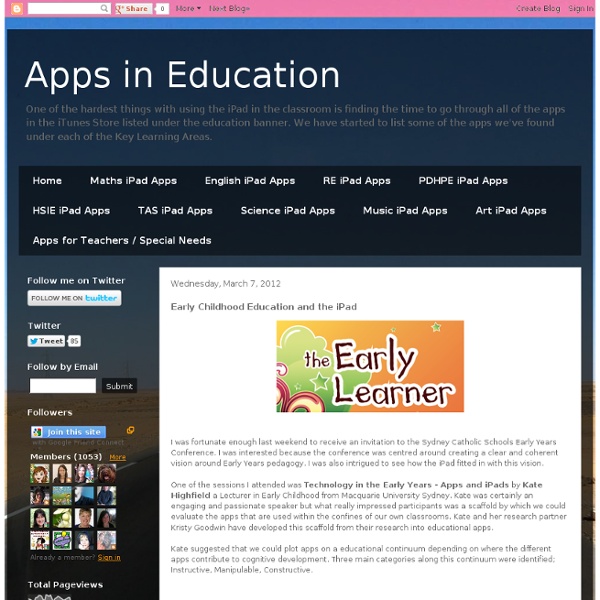Early Childhood Education and the iPad

How to organise Apps and manage restrictions for a Primary or Early Years iPad ... #ukedchat #ipaded #edtech - Enabling Environments
Please note that images on this blog reflect iOS 5, however the processes remain the same. For the Summer Term I am planning to support staff at the primary school I work at with understanding the basics of using an iPad in a primary classroom. This blog post is going to act as a base for all of my advice, so it will probably change over the coming weeks. For information on managing multiple devices and purchasing app licenses, see my blog post here: I saw a blog post at EdTechLoung.com this Easter holiday which gave a huge bank of recommended Apps for Early Years and Primary Education. When I supported the staff at Tiny Tots Day Nursery with the setting up of their iPad, I offered similar advice to them. Here is how I set up the iPad in my class: Installing, grouping and managing Apps and Folders Browse AppStore’s ‘education’ category or search for apps using the search function. Applying settings and restrictions 1.
ICT in the Early Years
Related:
Related:



